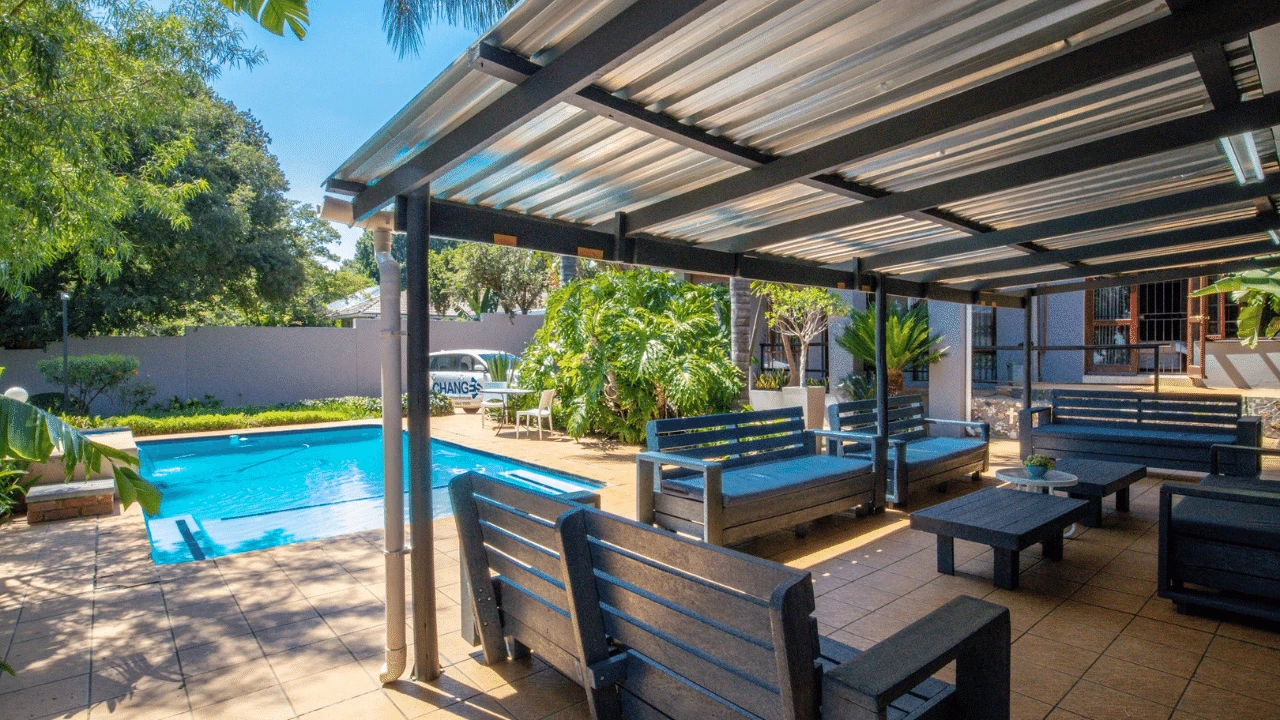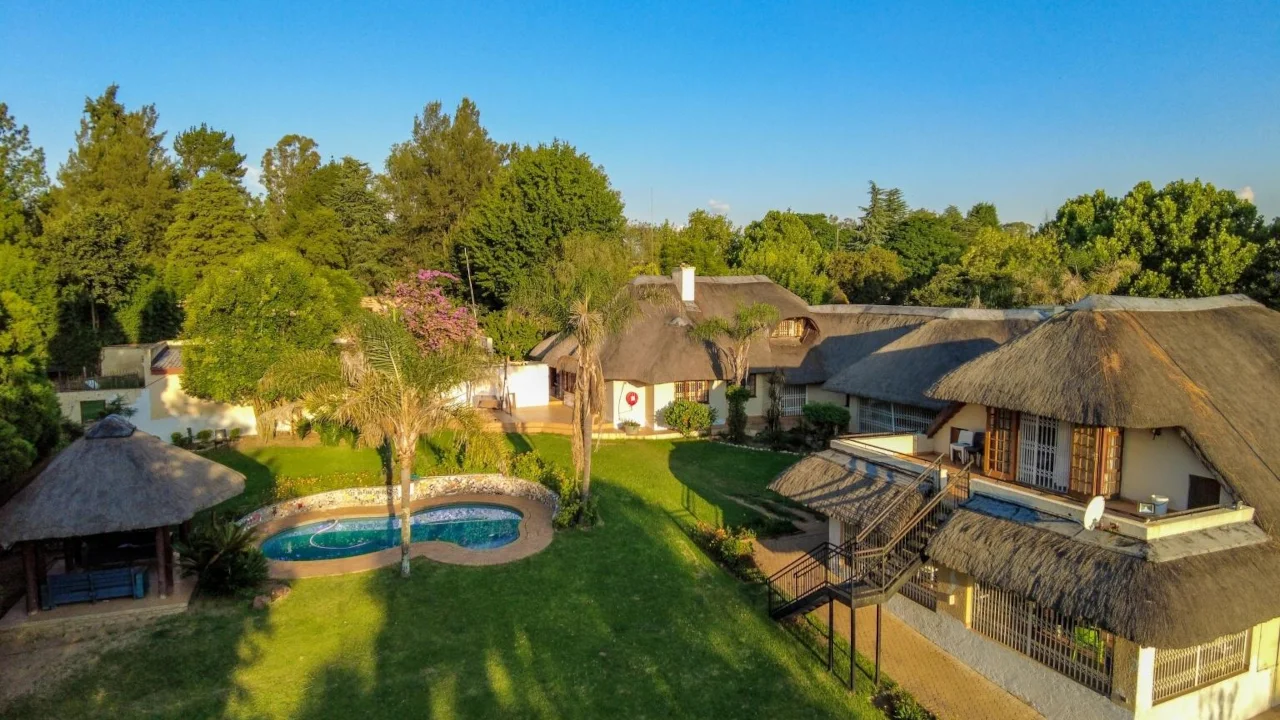
Comprehensive medically supervised addiction care in Johannesburg
Are you or a loved one seeking medically supervised, trauma informed addiction care in Johannesburg with round the clock nursing and structured residential support?
At Changes Rehab Johannesburg, we provide a medically supervised, trauma-informed continuum of care that meets people where they are, from inpatient detox and primary care to longer-term residential treatment and sober living. Our programmes are individualised and evidence-based, with 24-hour supervision (including a registered nurse), structured daily therapies, and nutritious meals that respect each client’s dietary needs. Whether you need safe detox and withdrawal support, time and space to deepen recovery, or a gradual, supported reintegration into everyday life, our comfortable, secure facilities and experienced multidisciplinary team are here to help—often with medical aid authorisation—so you can build lasting sobriety with confidence.

Inpatient Detox
Primary Care Rehab in Johannesburg
Changes’ primary facility accommodates 16 patients in Northcliff, Johannesburg. This intensive phase focuses on safe detox and withdrawal, dismantling denial, and building early recovery skills. Daily therapeutic modalities, 24-hour supervision with an experienced nurse, and nutritious, dietary-aware meals ensure a safe, comfortable start to treatment.

Long Term Rehab
Secondary Care Rehab
River Manor or ‘The Farm’ is a tranquil 20-bed facility in Ruimsig designed for deeper, longer-term treatment. Clients engage in a structured therapeutic routine, animal-assisted work (including equine), and guided personal growth, with 24-hour supervision and nurse support to manage needs as they arise.

Sober Living Homes
Tertiary Care Rehab
Changes facilitates two halfway house locations based in Johannesburg. Johannes House in Fairland and Auckland House in Melville are designed to support staged reintegration. Clients face real-world challenges with professional guidance, continue group therapy three times weekly, meet individually with counsellors, and are supported by experienced managers 24/7.
Confidential • Licenced • Support
Need help for yourself or a loved one?
Changes Rehab admissions for personal advice on treatment, medical aid or the next steps.
The continuum of care in addiction treatment supports individuals throughout their path to recovery. Inpatient detox provides intensive care for managing withdrawal and dismantling denial, typically lasting 21 to 42 days with 24-hour supervision. Following detox, primary rehab treatment focuses on intensive therapies and equipping patients with tools for a substance-free life. Secondary rehab offers long-term treatment, usually 1 to 3 months, in a safe environment for addressing deeper addiction issues with structured routines and therapies. Finally, tertiary care or sober living homes help individuals reintegrate into society with ongoing support, group therapy, and individual counselling, extending care up to 12 months or more. Each phase, often covered by medical aid, ensures a comprehensive and personalised approach to recovery, addressing both immediate and long-term needs. We offer the full continuum of care: outpatient, detox, primary rehab treatment, extended stay rehab and halfway house / sober home reintegration from our Johannesburg rehab facilities.
Assessment
A private clinical assessment clarifies risks, co-occurring concerns, and immediate next steps. We gather history, current symptoms, medications, and family input to match the right level of care. If admission is appropriate, we help you plan timelines and documentation so things move quickly. Learn how assessments work and what to expect on the day.
Withdrawal is managed under medical oversight to reduce risks and improve comfort. Nursing support is available 24/7, with medication protocols tailored to clinical need. Detox prepares patients for therapeutic work—sleep, nutrition, and stabilisation come first. See what to bring, typical timelines, and how we coordinate pre-authorisation.
The first 21–42 days focus on routine, safety, and daily therapy. Patients engage in individual and group sessions, psycho-education, and family contact where appropriate, supported by a multidisciplinary team. Primary care builds early momentum for change and prepares the plan for the next stage.
Secondary care deepens the work on patterns, triggers, and trauma in a calmer setting. With structured days, therapeutic groups, and coached routines, patients practise skills that hold at home. Families are updated and involved appropriately. Explore typical lengths of stay and why secondary care improves long-term outcomes.
For step-down care or when residential treatment isn’t possible, outpatient combines evening groups, one-to-one therapy, and accountability. The focus is integrating recovery into daily life—work, study, and family responsibilities—while maintaining structure and support.
Sober living provides a structured, supportive home environment with curfews, chores, coached routines, and ongoing therapy. It bridges the gap between inpatient treatment and independent living, reinforcing accountability and community while returning to work or study.
Patients learn how to spot risk early and respond fast—managing triggers, cravings, and high-risk situations. We build practical routines, communication plans, and support networks, with clear steps families can take too. See typical tools and how they’re practised before discharge.
Continuing care sustains progress after discharge: scheduled check-ins, group support, individual sessions where needed, and a plan for setbacks. We coordinate with families and community resources to keep recovery anchored in daily life.

Medical aid usually covers more than families expect.
We work with South African medical schemes daily and know how to handle pre-authorisations, ICD-10 coding and motivation letters so that cost is clear from the start.






